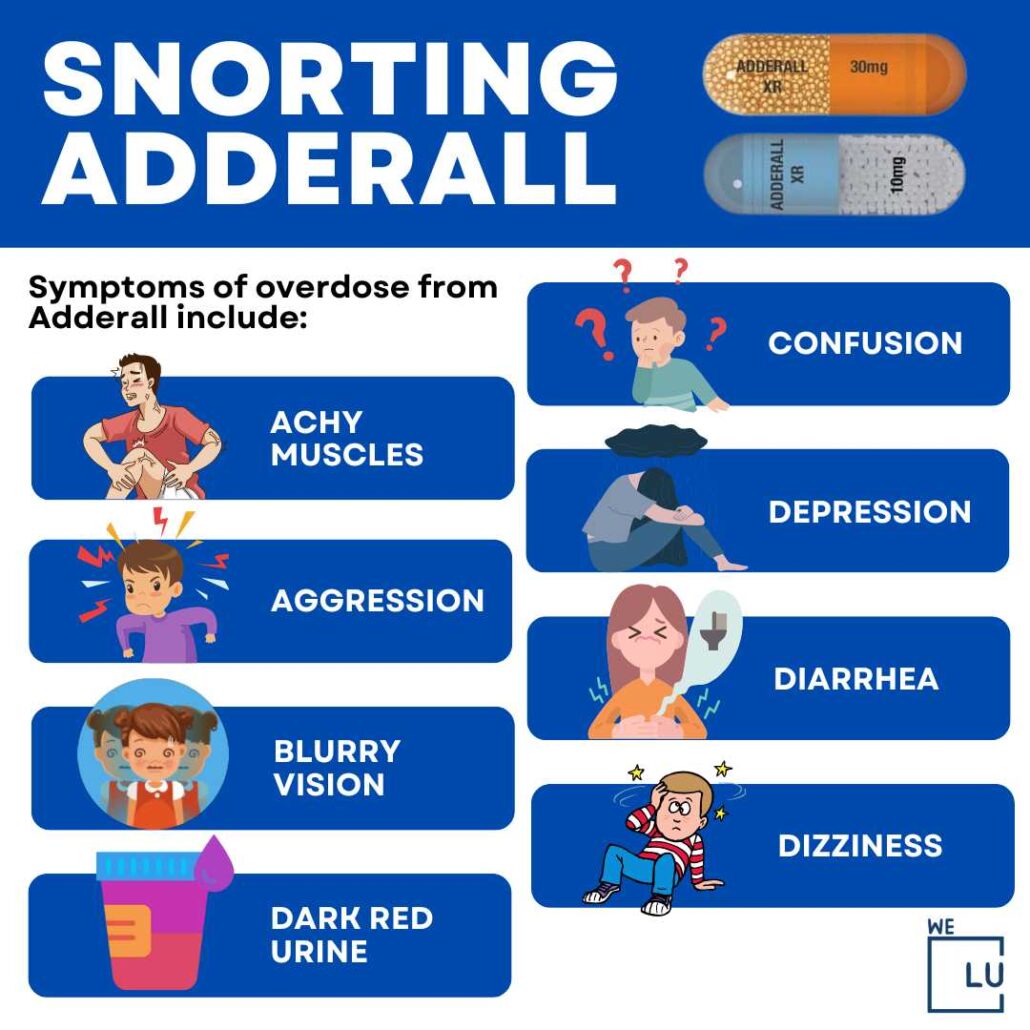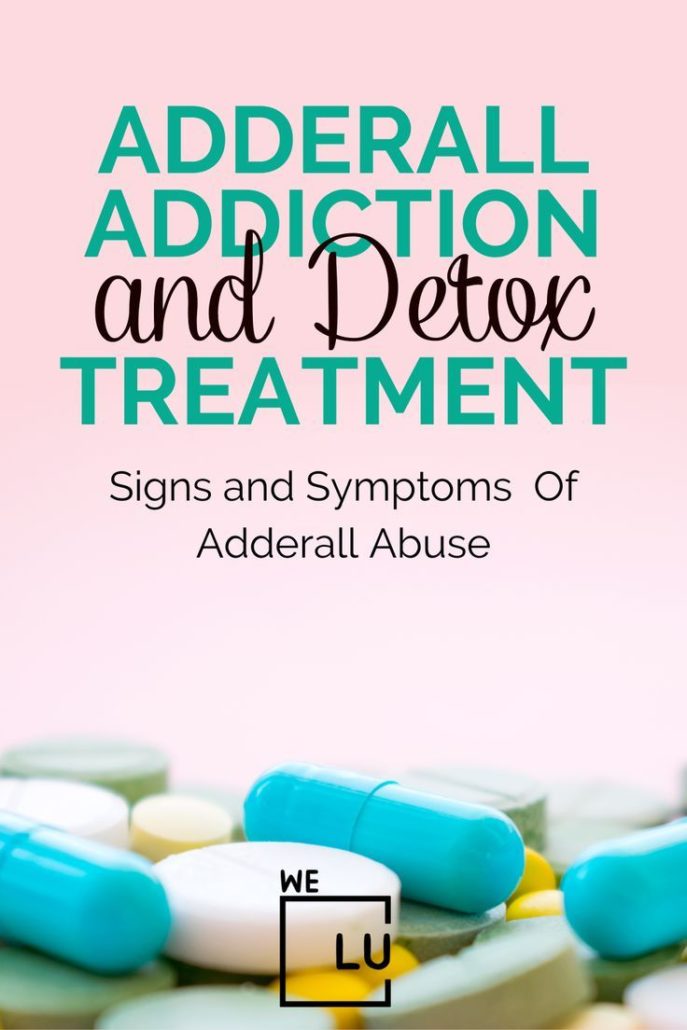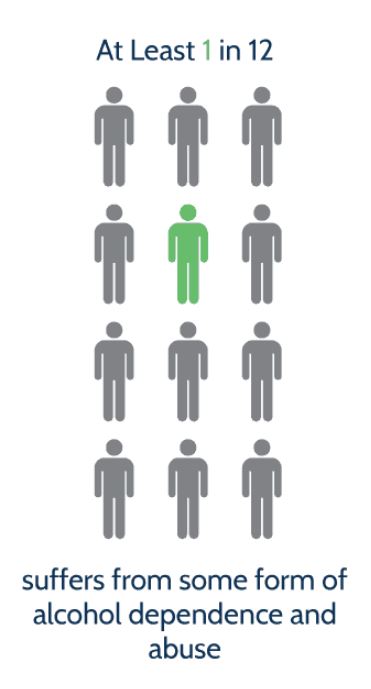Is Adderall a Narcotic?
Adderall is often given to people with ADHD (attention deficit hyperactivity disorder). Is Adderall a drug, and if so, what are its risks? We talk about how it is classified, how it could be misused, what side effects it has, and how important it is to treat it responsibly. This piece is helpful whether you are a patient, a caretaker, or a healthcare professional looking for information about Adderall and how it affects people’s lives.
Struggling with Substance Abuse? Join numerous individuals who have found support in We Level Up for drug addiction treatment. Contact us 24/7 for confidential assistance. Our addiction professionals are here to guide you on your recovery journey.
What is Adderall?
Adderall is a prescription medication with two active ingredients: amphetamine and dextroamphetamine. It belongs to a class of drugs known as central nervous system stimulants. Here’s a closer look at Adderall:
- Indications: Adderall is primarily prescribed to manage symptoms of ADHD, a neurodevelopmental disorder characterized by inattention, hyperactivity, and impulsivity. It also treats narcolepsy, a sleep disorder marked by excessive daytime sleepiness and sudden sleep attacks.
- How Adderall Works: Adderall works by increasing the levels of certain neurotransmitters, such as dopamine and norepinephrine, in the brain. These neurotransmitters play essential roles in attention, focus, and impulse control.
- Forms: Adderall is available in immediate-release (IR) and extended-release (XR) formulations. The XR version provides a longer duration of action, allowing for once-daily dosing.
- Potential for Abuse: Adderall has potential for misuse and abuse due to its stimulant properties. Some individuals, particularly those without a legitimate medical need, may misuse it for its stimulating effects, such as increased alertness and improved concentration.
- Side Effects: Common side effects of Adderall may include increased heart rate, elevated blood pressure, insomnia, decreased appetite, nervousness, and dry mouth.
- Treatment Duration: The duration of Adderall treatment varies based on individual needs and medical assessments. Some individuals may require short-term use, while others may benefit from long-term maintenance therapy.
- Responsible Use: It is crucial to use Adderall strictly as a healthcare professional prescribes. Misuse or abuse can lead to adverse effects and potential addiction.
- Monitoring: Healthcare providers closely monitor patients prescribed Adderall, adjusting the dosage as needed and monitoring for any side effects or signs of misuse.
- Safety Measures: Due to its potential for misuse, Adderall is classified as a Schedule II controlled substance in the United States, which means it has a recognized medical use but also carries a high potential for abuse and dependence.
Is Adderall Considered a Narcotic?
There is no classification of Adderall as a narcotic. Adderall is a prescription medicine that contains the central nervous system stimulants amphetamine and dextroamphetamine. Opioid drugs like morphine, codeine, and heroin, as well as synthetic compounds that replicate their effects, are commonly referred to as narcotics.
However, Adderall is a stimulant medicine typically prescribed for treating ADHD and narcolepsy. In the United States, Adderall is classed as a Schedule II prohibited substance despite not being a narcotic due to its potential for abuse and dependence.
Uncover addiction counseling that works. Discover professional help from We Level Up’s addiction and mental health therapists. Start getting support with a free call to our addiction hotline.
Skip To:
Learn More:
- Does Ozempic For Addiction Work? Ozempic and Addiction. Does Ozempic Help With Addiction?
- Is Promethazine a Narcotic? Promethazine Narcotic Uses, Side Effects, Warnings & Interactions. Is Promethazine-DM a Narcotic?
- Is Ambien a Narcotic? Abuse, Detox, Withdrawal, & Treatment. Is Ambien 10 mg a Narcotic?
- Is Gabapentin a Narcotic? Uses, Side Effects, & Dosages of Gabapentin Narcotics. Is Gabapentin Considered a Narcotic?
Adderall Narcotic Facts
Adderall Narcotic Abuse Overview
Adderall is a prescription medication commonly used to treat Attention Deficit Hyperactivity Disorder (ADHD) and Narcolepsy. However, Adderall is also a highly abused drug due to its stimulant effects that can increase focus, energy, and productivity. Individuals who abuse Adderall often take the drug in larger doses than prescribed, more frequently than prescribed, or without a prescription.
Adderall Narcotic Abuse Effects
Adderall abuse can negatively affect an individual’s physical and mental health. Short-term effects of Adderall abuse can include loss of appetite, insomnia, anxiety, agitation, and increased heart rate and blood pressure.
Is Adderall addictive? Long-term abuse of Adderall can lead to severe health problems such as addiction, cardiovascular damage, seizures, and psychosis. Additionally, Adderall abuse can cause relationship difficulties, academic or job performance problems, and legal issues. It is crucial to seek help for Adderall abuse to prevent these adverse effects and promote long-term health and well-being.
Adderall Narcotic Abuse Treatment
- Treatment for Adderall abuse usually involves a combination of therapy, support groups, and medication management.
- Detoxification is often the first step in treating Adderall abuse and involves managing withdrawal symptoms as the drug is slowly removed from the body.
- Behavioral therapy, such as cognitive-behavioral therapy (CBT), can help individuals identify and change negative patterns of thinking and behavior that contribute to substance abuse.
- Support groups like 12-step programs like Narcotics Anonymous can provide valuable support and accountability during recovery.
- Medications may be used to help manage withdrawal symptoms and cravings, as well as treat underlying mental health conditions that contribute to substance abuse.
- Aftercare programs, such as continued therapy and support groups, can help individuals maintain their recovery and prevent relapse.

Get Your Life Back
Find Hope & Recovery. Get Safe Comfortable Detox, Addiction Rehab & Dual Diagnosis Trused Care.
7/365 Line (844) 597-1011Adderall Narcotic Abuse Statistics
Adderall abuse is a growing problem in many parts of the world. According to recent studies and reports, Adderall abuse has increased among young adults, college students, and professionals seeking to enhance their academic or work performance. These statistics highlight the need for greater awareness and prevention efforts to address the negative consequences of Adderall abuse.
6.4%
Approximately 6.4% of Americans aged 18-25 reported misusing prescription stimulants like Adderall in 2020.
Source: National Survey on Drug Use and Health
220%
Emergency department visits related to nonmedical use of prescription stimulants, including Adderall, increased by 220% between 2006 and 2011.
Source: Journal of Clinical Psychiatry
20%
20% of college students reported using Adderall without a prescription, with the primary motivation being to improve academic performance.
Source: Partnership for Drug-Free Kids
Is There a Non-Narcotic Adderall?
If you are seeking a non-narcotic substitute for adderall for treating ADHD, there are non-narcotic medications and therapies that healthcare providers may consider. These alternatives include:

- Non-Stimulant Medications: There are non-stimulant medications approved for the treatment of ADHD. These include atomoxetine (Strattera), guanfacine (Intuniv), and clonidine (Kapvay). These medications work differently from stimulants and are non-narcotic.
- Behavioral Therapies: Behavioral therapies, such as cognitive-behavioral therapy (CBT) and behavior modification techniques, can effectively manage ADHD symptoms, especially in combination with non-stimulant medications.
- Lifestyle Modifications: Healthy lifestyle habits, such as regular exercise, a balanced diet, and good sleep hygiene, can help improve ADHD symptoms without using narcotics or stimulants.
- Educational and Supportive Interventions: Educational and supportive interventions can benefit individuals with ADHD and their families, providing strategies and resources to manage symptoms effectively.
Get Help. Get Better. Get Your Life Back.
Searching for Accredited Drug and Alcohol Rehab Centers Near You?
Even if you have failed previously and relapsed, or are in the middle of a difficult crisis, we stand ready to support you. Our trusted behavioral health specialists will not give up on you. When you feel ready or just want someone to speak to about therapy alternatives to change your life call us. Even if we cannot assist you, we will lead you to wherever you can get support. There is no obligation. Call our hotline today.
(844) 597-1011Causes of Adderall Narcotic Addiction
Adderall addiction, while not classified as a narcotic, can develop due to various factors, both physiological and psychological. Here are some potential causes and contributing factors to Adderall addiction:
- Medical Use and Prescription: Many individuals initially start taking Adderall for legitimate medical reasons, such as treating ADHD or narcolepsy. However, even when taken as prescribed, some people may develop a tolerance, leading them to increase their dosage without medical guidance.
- Misuse and Recreational Use: Some individuals may misuse Adderall to experience its stimulating effects, such as increased energy, focus, and alertness. This misuse can lead to addiction.
- Peer Pressure: In some cases, peer pressure or influence from friends or acquaintances who misuse Adderall can lead to experimentation and, potentially, addiction.
- Academic or Work Pressure: The pressure to perform academically or professionally can drive individuals to misuse Adderall to enhance concentration and productivity.
- Co-occurring Mental Health Conditions: Individuals with co-occurring mental health conditions, such as anxiety or depression, may be at a higher risk of developing Adderall addiction as they use the medication to self-medicate their symptoms.
- Genetic Factors: Genetic predisposition can play a role in addiction susceptibility. Some individuals may have genetic factors that make them more prone to substance abuse and dependence, including Adderall.
- Psychological Factors: Psychological factors, such as a history of trauma, stress, or a lack of healthy coping mechanisms, can contribute to Adderall addiction.
- Availability: Easy access to Adderall, whether through legitimate prescriptions, sharing or selling among peers, or obtaining it from illicit sources, can contribute to addiction.
- Withdrawal Avoidance: Some individuals continue using Adderall to avoid experiencing uncomfortable withdrawal symptoms, which can be challenging.
- Lack of Education: Insufficient knowledge about the risks and potential for addiction associated with Adderall can lead to unintentional misuse.
- Environmental Factors: The social and cultural environment can influence Adderall misuse and addiction, especially when stimulant misuse is prevalent.
- Lack of Access to Treatment: Limited access to addiction treatment and support can hinder individuals from seeking help to overcome Adderall addiction.
Is Adderall a Scheduled Narcotic?
Yes, Adderall is classified as a scheduled controlled substance in the United States, but it isn’t a narcotic. Specifically, it is categorized as a Schedule II controlled substance under the Controlled Substances Act (CSA). Schedule II substances have a high potential for abuse, a currently accepted medical use with severe restrictions, and a high likelihood of physical and psychological dependence.
This scheduling is due to Adderall’s stimulant properties and its potential for misuse, abuse, and addiction when not used as prescribed by a healthcare provider. As a Schedule II controlled substance, stricter regulations and monitoring requirements are in place for its prescription and dispensing to help mitigate these risks.

First-class Facilities & Amenities
Trusted Integrated Addiction & Mental Health Rehabilitation Treatment
Rehab Centers TourEstablished Addiction Centers. Serene Private Facilities. Inpatient rehab programs vary.
Addiction Helpline (844) 597-1011Comprehensive recovery success experience, backed by a Team w/ History of:
15+
Years of Unified Experience
100s
5-Star Reviews Across Our Centers
10K
Recovery Success Stories Across Our Network
- Low Patient to Therapist Ratio
- Onsite Medical Detox Center
- Comprehensive Dual-Diagnosis Treatment
- Complimentary Family & Alumni Programs
- Alumni Coaching, Recovery & Personal Development Events

Adderall Narcotics Addiction Treatment
Adderall addiction can be a complex and challenging journey, and we’re here to provide comprehensive support.
Our Services Include:
- Dual Diagnosis Treatment: Addressing co-occurring mental health issues alongside addiction, our integrated care approach promotes lasting recovery.
- Medical Detox: Ensuring a safe and comfortable Adderall withdrawal under expert supervision.
- Individualized Therapy: Exploring addiction’s root causes and developing personalized recovery strategies through one-on-one counseling.
- Group Therapy: Building community and sharing experiences in supportive group sessions.
- Holistic Approaches: Incorporating yoga, meditation, and art therapy to address physical, emotional, and spiritual aspects of recovery.
- Relapse Prevention: Equipping individuals with tools to identify triggers and maintain sobriety.
Our commitment at We Level Up is helping individuals overcome Adderall addiction for lasting recovery. Our evidence-based treatments, compassionate staff, and personalized care plans support each person’s unique journey to sobriety. If you or someone you know is struggling with Adderall addiction, reach out today. We provide guidance and support, promoting mental health and well-being.
We Level Up Treatment Center is committed to guiding you toward lasting recovery from Adderall Addiction and co-occurring conditions. Our multidisciplinary team is here to provide unwavering support, guidance, and personalized care every step of the way. Let’s embark on this transformative journey together.
Specialized, Accredited, 5-Star Reviewed, Evidence-based Addiction & Mental Health Programs. Complete Behavioral Health Inpatient Rehab, Detox plus Co-occuring Disorders Therapy.
CALL(844) 597-1011End the Addiction Pain. End the Emotional Rollercoaster. Get Your Life Back. Start Drug, Alcohol & Dual Diagnosis Mental Health Treatment Now. Get Free, No-obligation Guidance by Substance Abuse Specialists Who Understand Addiction & Mental Health Recovery & Know How to Help.
Popular Is Adderall a Narcotic FAQ
-
What type of narcotic is adderall?
Adderall is not classified as a narcotic.
-
Is adderall a narcotic medication?
While Adderall is not a narcotic, it is a controlled substance due to its potential for misuse, abuse, and dependence. Adderall is classified as a Schedule II controlled substance in the United States, indicating that it has a recognized medical use but also carries a high potential for abuse and addiction.
Experience Transformative Recovery at the We Level Up Treatment Center.
See our authentic success stories. Get inspired. Get the help you deserve.
Experience Transformative Recovery at We Level Up Treatment Centers.
See our authentic success stories. Get inspired. Get the help you deserve.
Start a New Life
Begin with a free call to an addiction & behavioral health treatment advisor. Learn more about our dual-diagnosis programs. The We Level Up Treatment Center Network delivers recovery programs that vary by each treatment facility. Call to learn more.
- Personalized Care
- Caring Accountable Staff
- World-class Amenities
- Licensed & Accredited
- Renowned w/ 100s 5-Star Reviews
We’ll Call You
Powerful Video Overcoming Prescription Drug Abuse
“I wanted my life back. I was a shell of a person. I wanted to be trusted; I wanted relationships back that I lost, mainly my children and family. It started innocent enough, I got into a car accident, and then I got sucked into the whole, you know, medication issue with the pills. Before I knew it, I was in a cloud. I was sucked in by addiction, and with my mind, I kept thinking it was OK because a doctor was prescribing this for me, a doctor was giving me this, a doctor was giving me that.
So, I didn’t think I was doing anything wrong. Level Up supports my family and my relationships with my family, and they’ve helped me grow as a person. When I first started there, I was so intimidated and scared, you know? But, they’ve taught me, they’ve taught me how to come into my own. And then, you know, when I get the call from my twenty-one-year-old daughter in the middle of the day, to say ‘I love you, Mom.’ that’s amazing.”
Jen’s Addiction Recovery Testimonial
Search Is Adderall a Narcotic We Level Up Alcohol Poisoning Detox, Mental Health Topics & Resources
Sources
[1] Newman RK, Stobart Gallagher MA, Gomez AE. Alcohol Withdrawal. [Updated 2022 Aug 29]. In: StatPearls [Internet]. Treasure Island (FL): StatPearls Publishing; 2023 Jan-. Available from: https://www.ncbi.nlm.nih.gov/books/NBK441882/ Is Adderall a Narcotic
[2] Alcohol Facts and Statistics – National Institute on Alcohol Abuse and Alcoholism (NIAAA) Is Adderall a Narcotic
[3] Nehring SM, Freeman AM. Alcohol Use Disorder. [Updated 2022 Jul 31]. In: StatPearls [Internet]. Treasure Island (FL): StatPearls Publishing; 2023 Jan-. Available from: https://www.ncbi.nlm.nih.gov/books/NBK436003/ Is Adderall a Narcotic
[4] Alozai Uu, Sharma S. Drug and Alcohol Use. [Updated 2022 Jun 21]. In: StatPearls [Internet]. Treasure Island (FL): StatPearls Publishing; 2023 Jan-. Available from: https://www.ncbi.nlm.nih.gov/books/NBK513263/
[5] Alcohol use disorder – Available from: https://medlineplus.gov/download/genetics/condition/alcohol-use-disorder.pdf
[6] Huebner RB, Kantor LW. Advances in alcoholism treatment. Alcohol Res Health. 2011;33(4):295-9. PMID: 23580014; PMCID: PMC3860532.
[7] Center for Substance Abuse Treatment. A Guide to Substance Abuse Services for Primary Care Clinicians. Rockville (MD): Substance Abuse and Mental Health Services Administration (US); 1997. (Treatment Improvement Protocol (TIP) Series, No. 24.) Chapter 5—Specialized Substance Abuse Treatment Programs. Available from: https://www.ncbi.nlm.nih.gov/books/NBK64815/
[8] LaHood AJ, Kok SJ. Ethanol Toxicity. [Updated 2023 Mar 13]. In: StatPearls [Internet]. Treasure Island (FL): StatPearls Publishing; 2023 Jan-. Available from: https://www.ncbi.nlm.nih.gov/books/NBK557381/
[9] Alcohol’s Effects on Health – National Institute on Alcohol Abuse and Alcoholism (NIAAA)
[10] Alcohol’s Effect on Health: NIAAA brochures and fact sheets – National Institute on Alcohol Abuse and Alcoholism (NIAAA)











